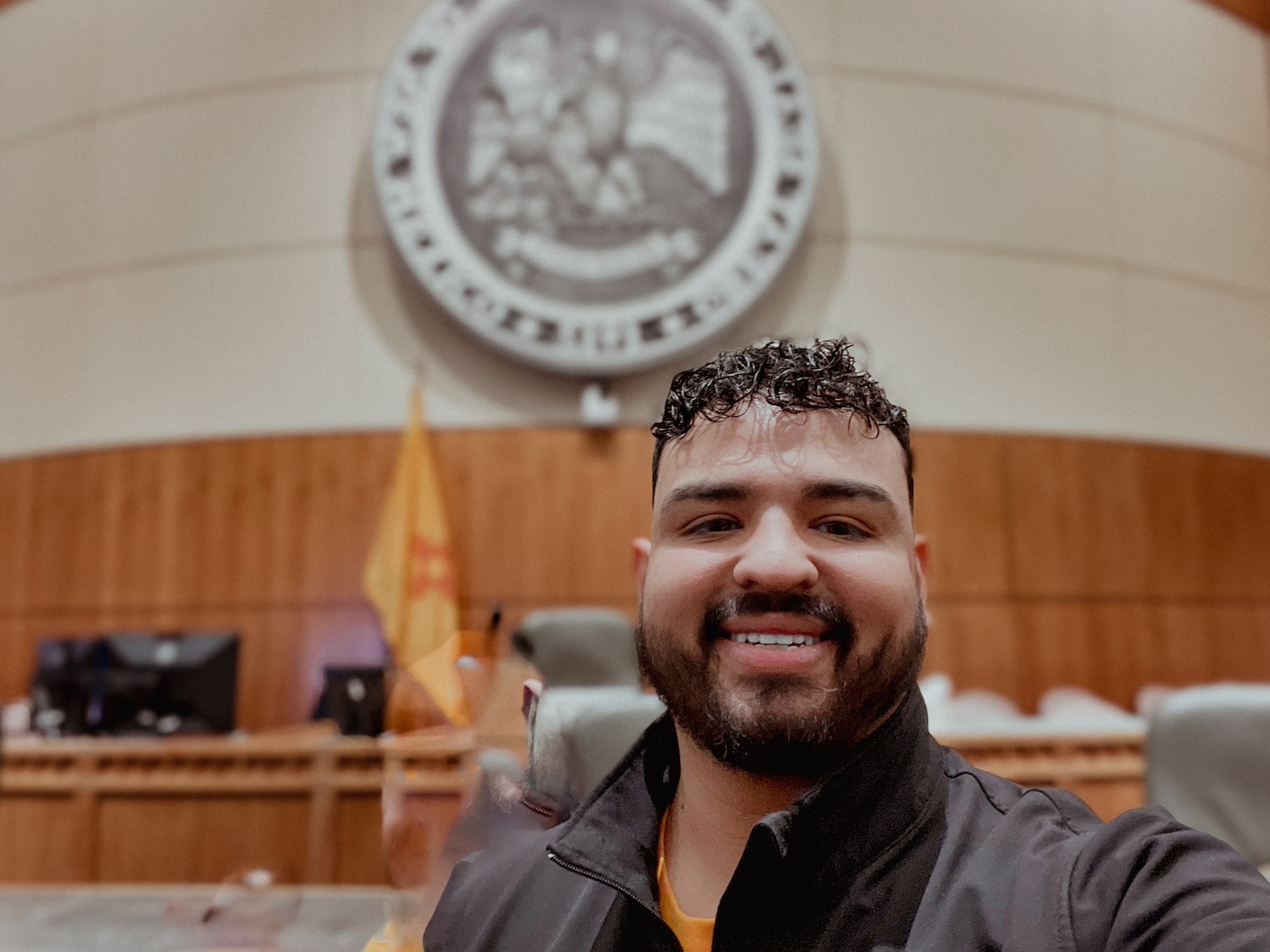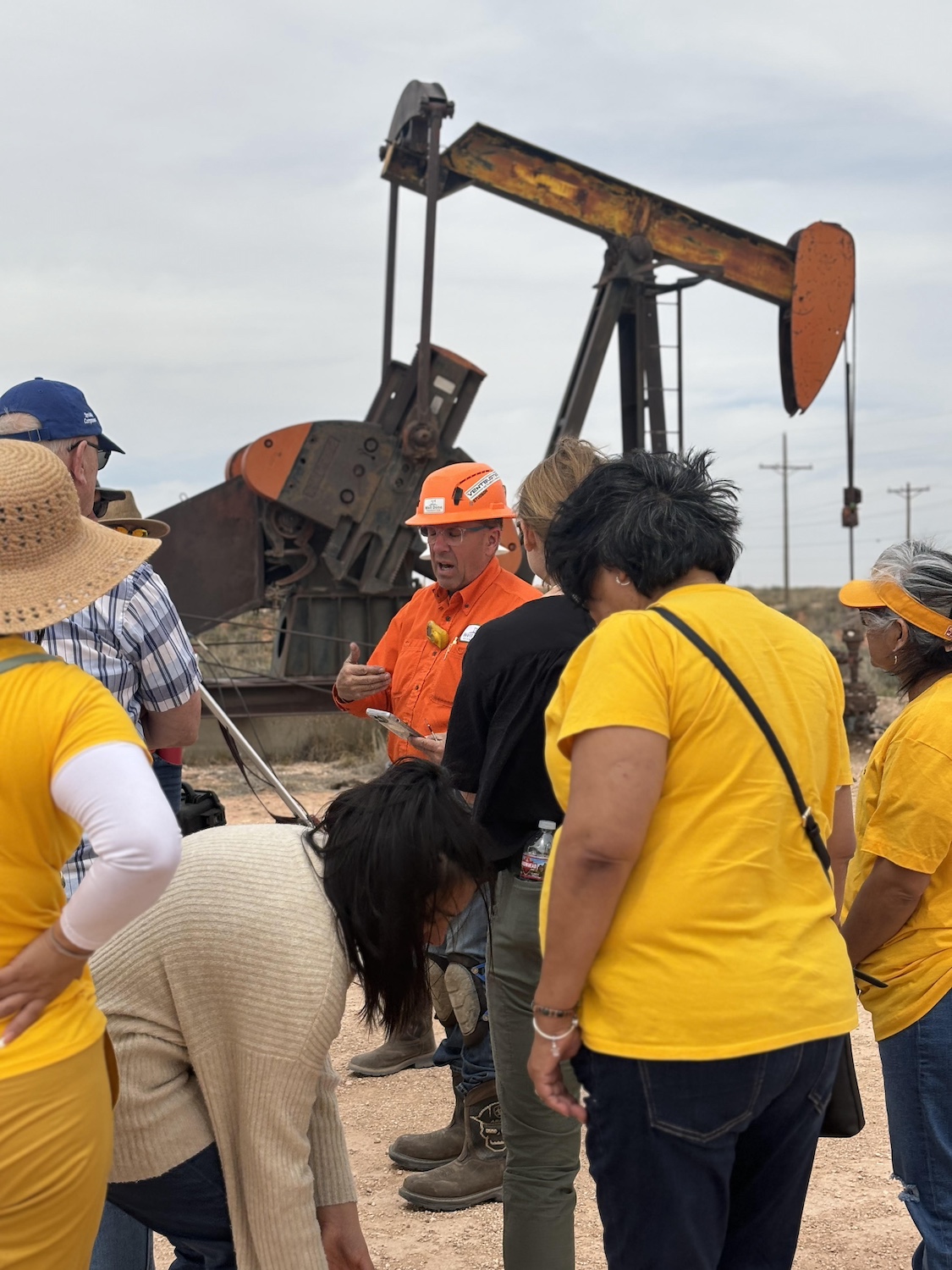
(Image: Zbynek Burival/Unsplash)
“If we want change, we're going to have to change it,” Felix Rodriguez, a community organizer at Somos Un Pueblo Unido, told TriplePundit. It’s a statement that applies to many issues, but it’s especially true for immigrant rights in the workplace, where political power is negligible. “We basically have zero,” he said.
Rodriguez is the newest community organizer with Somos, an immigrant rights organization that’s strengthening its members’ resolve to demand better treatment and employment options during the transition to low-carbon energy. As a former oil and gas worker and a member of the local community, he’s well-versed in the barriers workers face in New Mexico’s Permian Basin, one of the top oil regions in the United States. He’s volunteered with Somos since he was in fifth grade.
Making immigrant voices heard starts with networking
There weren’t any Somos members in Artesia and Carlsbad, New Mexico, when Rodriguez began organizing in the area, so he had to network from scratch. His connection to the community no doubt made a difference in his ability to relate to people and connect to them through local institutions, such as churches.
“I give them homework: Bring one person so they can learn about their rights,” he said. “And they'll bring them, and that's how we started growing.”

But organizing mixed-status workers comes with challenges. Undocumented immigrants are often, understandably, reluctant to make their voices heard. While he hasn’t personally witnessed retaliation or had it reported to him, Rodriguez said it is a risk that members are aware of.
“People are scared to share,” he said. “Sometimes they don't want to speak about what's going on at work with fear of getting fired, for example, or retaliation. And that's our biggest barrier with a lot of our members, just that fear of sharing their experiences.”
Ensuring workers know their rights is a first step to a just transition
While Somos is heavily invested in fighting for improved working conditions and a just transition to net zero, the organization is also working hard to ensure that workers are aware of the rights they do have — regardless of their immigration status. Rodriguez holds regular workshops for Somos members in his area, where he educates them on the laws meant to protect them from exploitative employment practices and workplace discrimination.
“A lot of them are scared to even ask for a day off, even if they're sick,” he said. “Another thing is, they have to be paid for their hours … Sometimes they will not say anything if they're not paid for overtime. Or even for working on a weekend, and it's still within the 40 hours, but they're not being paid.”
Undocumented immigrants are particularly vulnerable to wage theft, but even documented workers are prone to retaliation when they report exploitative employers. Such reprisals can be especially harsh for those without permission to work in the U.S., going beyond unfair disciplinary action and termination. When faced with paying back wages, employers across multiple industries are known to call immigration on their workers, weaponizing deportation to avoid financial repercussions.
Fortunately, the federal government implemented a deferred action process that prevents undocumented workers who report labor violations from being deported for up to two years. In the meantime, they can also apply for a temporary work visa. In addition to educating workers on their general employment rights, Somos makes sure they’re aware of deferred action should it become necessary.

Increasing voter turnout is a major goal
While many residents in Rodriguez’s region are not eligible to vote due to their citizenship status, those who are eligible are often unaware of the difference they can make. “That's where we come in,” he said. “We're educating our community, basically, and having them go out and vote and making their voice heard.”
The organization had a good turnout in the last election and helped Gabe Vasquez be elected to the U.S. House of Representatives, serving New Mexico's second congressional district in the southern half of the state, Rodriguez said.
“We did see that change,” he said. “We saw that people went out and voted, and we're very happy with it. This year, we're going to be doing the same thing, and going out and getting people to vote.That's really important because if we want change, our members are going to be that change.”
Increasing voter participation is also integral to attracting candidates who represent the people instead of the oil and gas industry. There haven’t been many such candidates on the ballot, leaving oil and gas families with limited electoral options and, consequently, limited power, Rodriguez said. He’s hopeful this will turn around as more of the workforce gets out to vote.
Although oil and gas families make up the majority of the population in southeastern New Mexico, their mixed status means they are less represented in the local electorate. While Somos is increasing voter turnout among citizens, the fact that many residents in the Permian Basin are ineligible to vote is a major limitation.
The organization works to change this by assisting immigrants in attaining citizenship through its Citizenship Now program, which is currently assisting 51 participants with the necessary paperwork. So far, 282 immigrants became U.S. citizens through the program. It is a slow process that won’t change the outcome of elections right away, but it drastically changes outcomes for those who are able to successfully complete the process.

Riya Anne Polcastro is an author, photographer and adventurer based out of Baja California Sur, México. She enjoys writing just about anything, from gritty fiction to business and environmental issues. She is especially interested in how sustainability can be harnessed to encourage economic and environmental equity between the Global South and North. One day she hopes to travel the world with nothing but a backpack and her trusty laptop.














